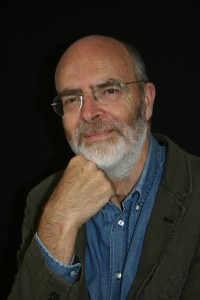
Flatulence is a Problem Aired: Resmelling the stench of past undertakings
Introduction
Resmelling the stench of past undertakings — review and commentary
— Flatulence | Internationalism | Absurdity of the global problematique
— Unusual smells | Crisis of crises | Irrelevance | Mediocrity | Connectivity
— Collective impotence | Questions and answers | Plethora of potential possibilities
— Decision-making perfumery of the future | Blaming the messenger
Conclusion
Introduction
The third edition of the Encyclopedia of World Problems and Human Potential (1990) was reviewed for The Guardian by John Vidal under the title Flatulence is a Problem Aired (The Guardian, 7 February 1992). The review was introduced by the phrase: John Vidal finds the authors of a definitive guide to all the world's ills treading an ever thinner line between the sublime and ridiculous. The author of the review is a renowned editor on environmental matters, most notably for The Guardian. At that time the review could be seen as a highly skillful journalistic exercise in what has since been recognized as characteristic of negative campaigning — although the intention in so framing the undertaking was unclear at the time.
Twenty years later, following multiple global initiatives endeavouring to identify and address the “world's ills”, it is useful to employ that review as a template to understand the nature of progress since that time with respect to remedial action on environmental and other matters — considered by disparate constituencies to be symptomatic of those ills. Vidal himself has notably been an attentive and perceptive commentator on the succession of Earth Summits: United Nations Conference on Environment and Development (Rio de Janeiro, 1992), World Summit on Sustainable Development (Johannesburg, 2002), United Nations Conference on Sustainable Development (Rio de Janeiro, 2012).
The language typically used to identify problems, and to frame and comment on remedies, depends heavily on the “vision” metaphor — as in “envisaging” the future and recognizing the contrasting “perspectives” in their clarification, or in use of “review”. Other senses employed metaphorically are those of taste, touch, and sound — used to a far lesser degree in strategic thinking, however important they may be to some, most notably in efforts by politicians to engage with the public (Metaphor and the Language of Futures, 1992). Vidal's chosen title offers the opportunity to explore a powerful alternative metaphor most commonly used with respect to the “stench” of corruption undermining so many initiatives. With respect to visions of the future, rather than any “review”, is there not a case for a “resmelling”, a “retasting”, or a “rehearing”? If not, why not?
It is curious to recognize that the profession that could be considered most sensitive to “smell” is that of journalism. It is investigative journalists who are valued for their ability to “sniff out” corruption in the public domain. Indeed it is critical journalists who are most assiduous in indicating the existence of unusual “smells” — as do pointer gundogs. The skill may be acknowledged as “flair”. Ironically, given Vidal's chosen title, it is they who indicate the existence of “flatulence” in public discourse on any issue. In this sense Vidal effectively acknowledges a function of the Encyclopedia of which he is so critical. He fails to recognize that it is an exercise in what is effectively investigative journalism.
Strangely, little use is made of the odour metaphor to frame a desirable future rather than to reject the “stench” of an undesirable past. It is however used to describe the task of public relations in offering a form of “deodorant” for questionable strategies. Curiously the wafting of odours, so well-recognized in chemistry, has not been adapted to identifying strategies through their “smell”. How a suitably “aromatic” or “perfumed” future is to be understood — other than through edenic intimations of fragrance — is yet to be clarified. It is a challenge in use of language meriting the attention of The Guardian — especially given the attraction of the provocative Islamic classic The Perfumed Garden of Sensual Delight (cf. Strategic Challenge of Polysensorial Knowledge: bringing the “elephant” into “focus” , 2008).
The following exercise is produced on the occasion of a page-one review of the Encyclopedia of World Problems and Human Potential initiative in The Wall Street Journal by Daniel Michaels (Encyclopedia of World Problems Has a Big One of Its Own, 12 December 2012). It would be a major understatement to say that that periodical is one whose values are shared by The Guardian to a relatively limited degree. Within the odour metaphor, it might be said that the two periodicals are each repelled by the “smell” of the other — if not the “stench”. This is but one indication of the challenges of care for the planetary body, as separately explored (Epistemological Challenge of Cognitive Body Odour: exploring the underside of dialogue, 2006).a



